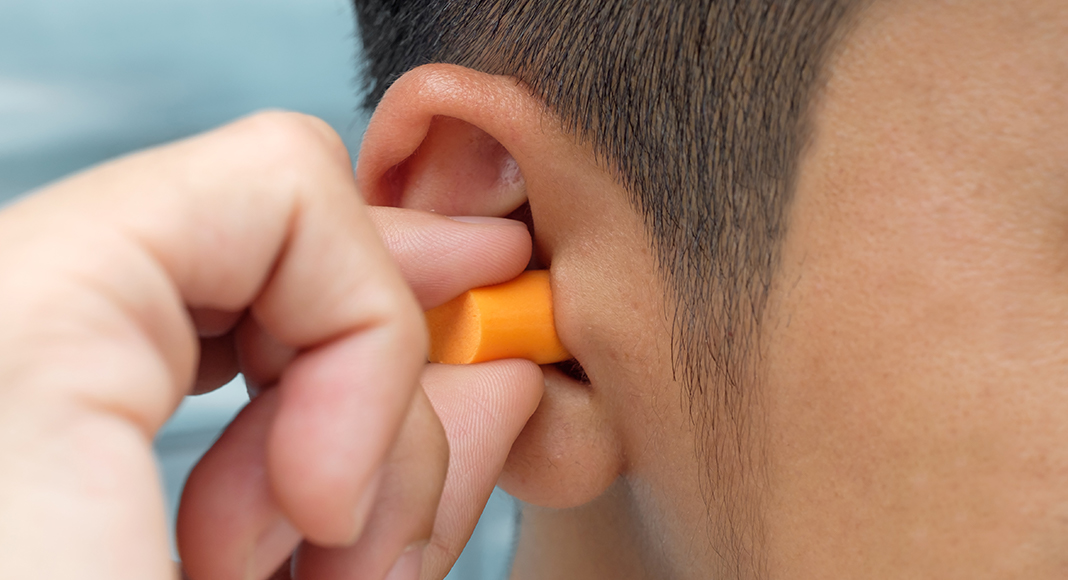Just as the voice is key to being able to perform as a voice actor, the ability to hear and to hear well, can make or break a career in audio recording and engineering.
Protecting an engineer’s golden ears helps them to work for as long as possible in the field of audio production.
In this article
- Getting Serious About Your Hearing
- Making The Coolest Earplugs Ever
- The Custom Fit Earplugs Offer a Choice of Filters, Including:
- How Do You Protect Your Hearing?
How can this be done?
Hear about some proactive steps the Ontario Institute of Audio Recording Technology is taking to protect the ears of their students and future audio engineers in today’s VOX Daily.
Getting Serious About Your Hearing
One of the world’s finest audio recording schools can be found in our hometown of London, ON Canada. The Ontario Institute of Audio Recording Technology, affectionately known by its acronym OIART, cares deeply about their students, especially their hearing.
Recently, OIART graduate Keith Gordon returned to the school and fit each student with a set of custom in-ear earplugs to protect their hearing. Keith was there for two days and the process took less than 10 minutes per person. According to OIART’s blog, the earplugs also accept the nozzle end of any set of headphones with removable buds, meaning you can turn the earplugs into custom fit earbuds.
Making The Coolest Earplugs Ever
Keith Gordon relates, “Instant Custom Fit uses what I call a ‘core,’ which is a center structure shaped like an ear canal. Then there is a soft silicone bladder that fits over the core like a balloon. Between the core and this bladder, liquid silicone is injected into the earpiece while it is still outside the ear. The ear piece is then placed into the ear canal. The bladder full of liquid silicone will conform to the shape of the ear and set into place. The patient ends up with a custom fitted ear piece within three minutes.”
The Custom Fit Earplugs Offer a Choice of Filters, Including:
- 5 dB *
- 10 dB
- 15 dB
- 17 dB
- A full block 25 dB filters
* dB refers to Decibels
These earplugs can be made to accommodate different needs, for instance, guitar players versus drummers or non-musicians. And as OIART says, great hearing protection is just as valuable as great gear!
How Do You Protect Your Hearing?
Be sure to comment and share how you protect your golden ears and tell us what your hearing means to you.
Best wishes,
Stephanie

Comments
Hearing protection is very important.
Here are my tips:
1) Do not monitor too loudly. Generally try to monitor as softly as you are able while still hearing everything clearly.
2) Save louder monitoring for the end of a mix.
3) Take breaks of at least 10 minutes of every hour of recording/listening.
4) No alcohol or any other desensitizing drugs when recording/mixing.
5) Limit headphone usage (this also applies to ipods and other portable listening devices). Use studio monitors when editing and mixing.
6) Have earplugs available at all times for concerts, clubs, or other potentially loud events.
7) Get your hearing checked. Ringing ears can indicate potential hearing damage or possibly other health concerns.
Protect your ears!
Dan Friedman
Yes, take care friends. Long ago, I knocked many dB of top end from one ear by just walking in front of a big speaker at a pop gig. Fortunately, it doesn’t hamper mono work but does get in the way of my great love – live music from a full orchestra and choir.
Headphones easily reach damaging levels, particularly if used for long periods. For safety, I use mine on a flea-power valve amplifier rather than the beefy Mac outlet, and it lights a lamp if my listening level creeps up… which as we all know it does as the day wears on.
You can, as indicated by OIART, use earplugs – of the pro kind that don’t spoil tonal balance. Another approach is to have someone make you an attennuator for your cans that will ensure the monitoring outlet runs out of steam before your ears do. Take care.
Thanks for this post, Stephanie. Westone has been making custom-fitted earplugs for years. I’m on my second pair. An audiologist makes a mold of your ear canal (which is kinda icky). The plugs are made from the molds and fitted with the desired filter (15 to 25 dB). They’ll run you about 150 dollars. As a commercial producer for radio, I learned early on how valuable my hearing was. Once I started to play in a band, it became imperative to protect what I have. People must think I’m nuts when I go to a concert (even acoustic performances) and pop in the plugs, but I know they’ve saved me a lot of damage. One word of advice; use iPod ear buds sparingly.
I use earplugs when I mow the lawn and even when I use my too-loud blow dryer! I value my hearing too much to take chances!
I don’t watch anything featuring Fran Drescher without wearing hearing protection.
I hear ya! (no pun intended)-As an aging babyboomer, if I go to a concert (usually 60’s or 70’s music-sometimes doo-wop) I shove earplugs in-who care what people think? It’s important to preserve whatever hearing is left. Use plugs while using the snowblower, dryvac, and lawn mower as someone had mentioned.